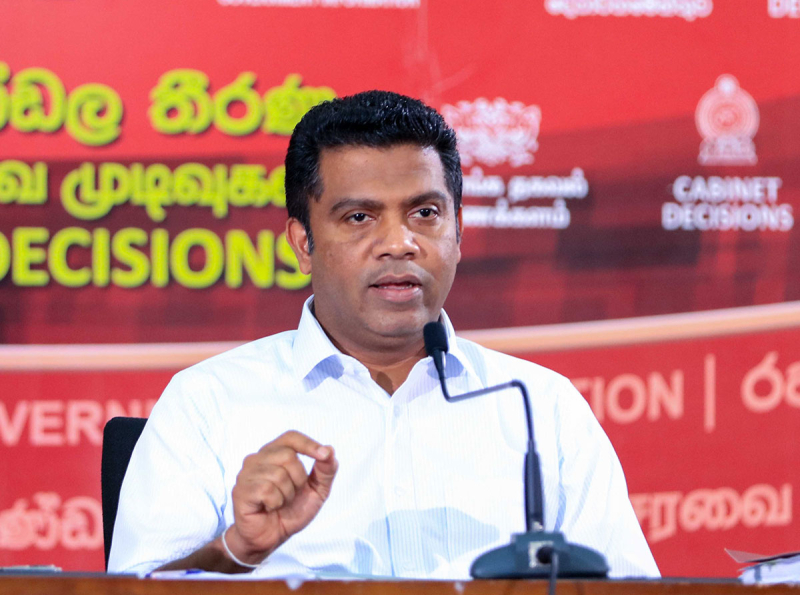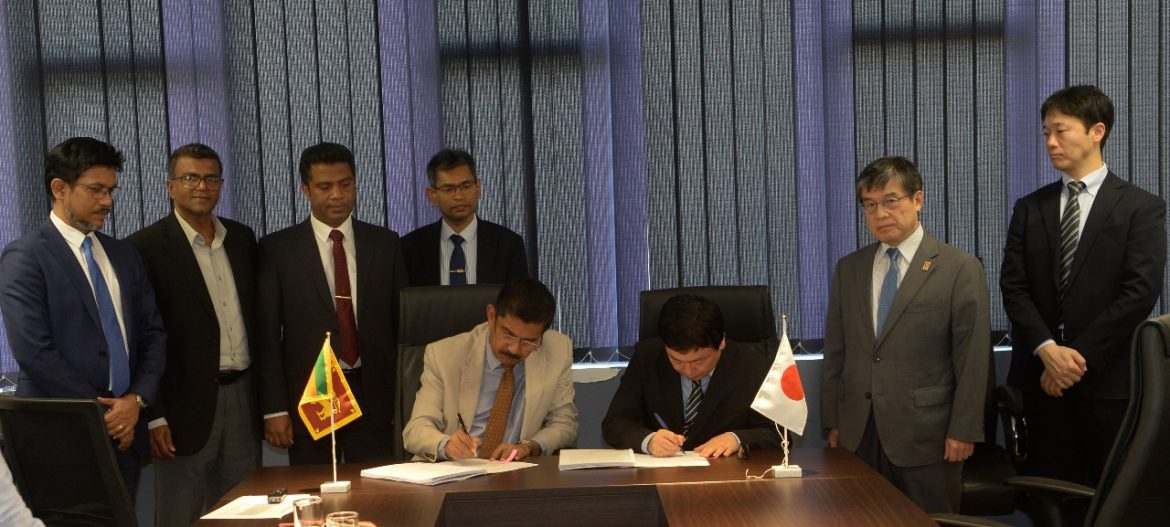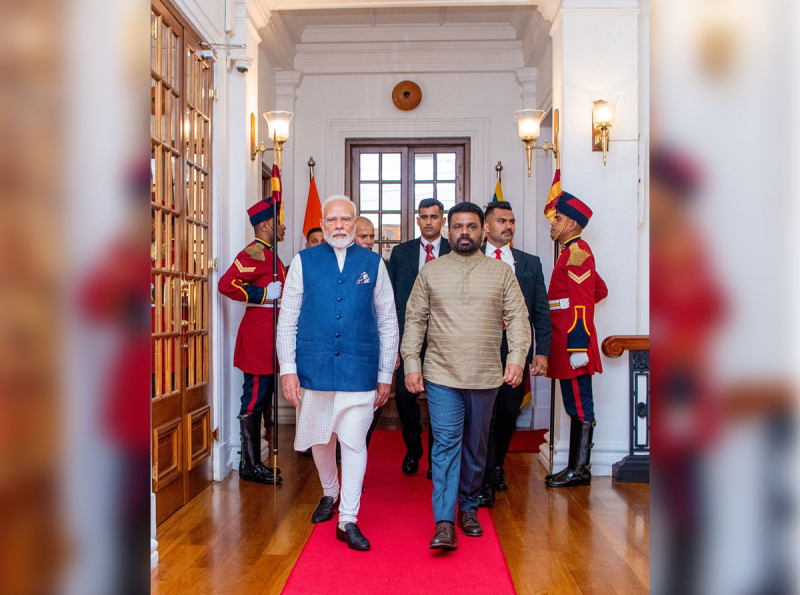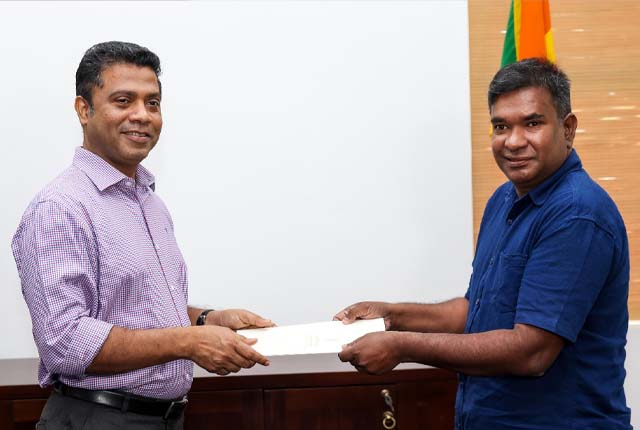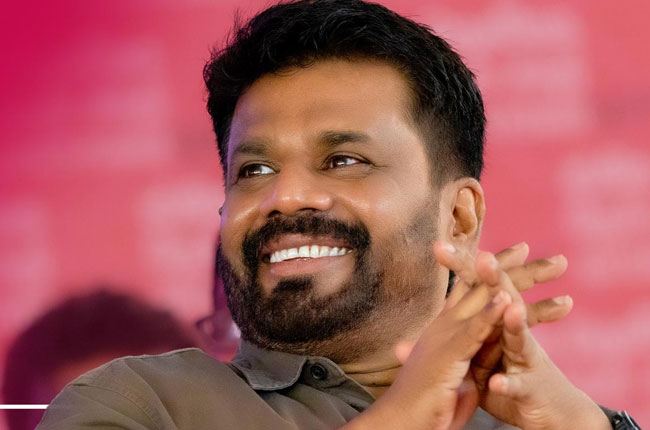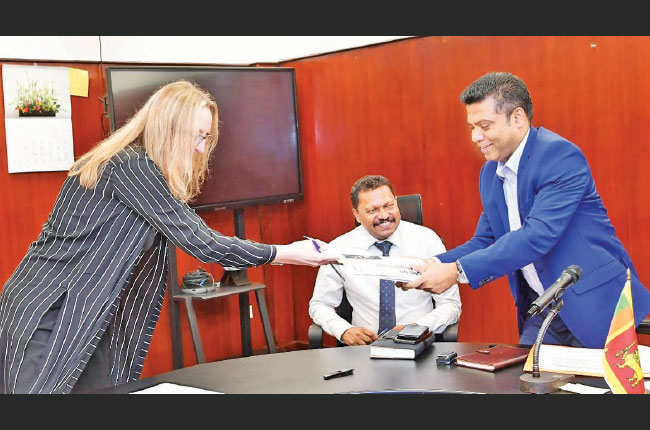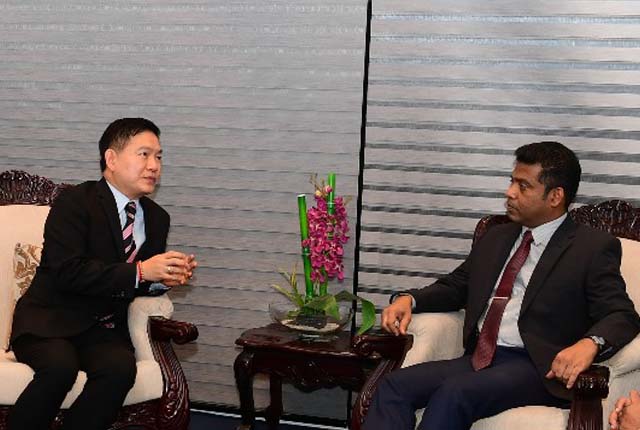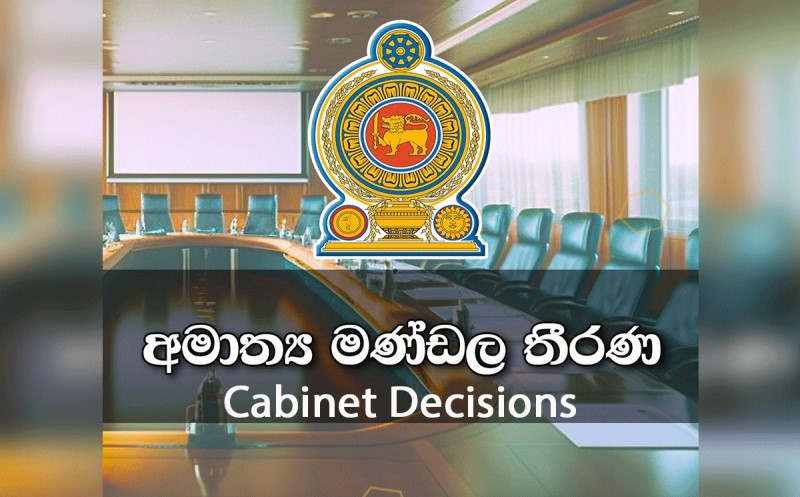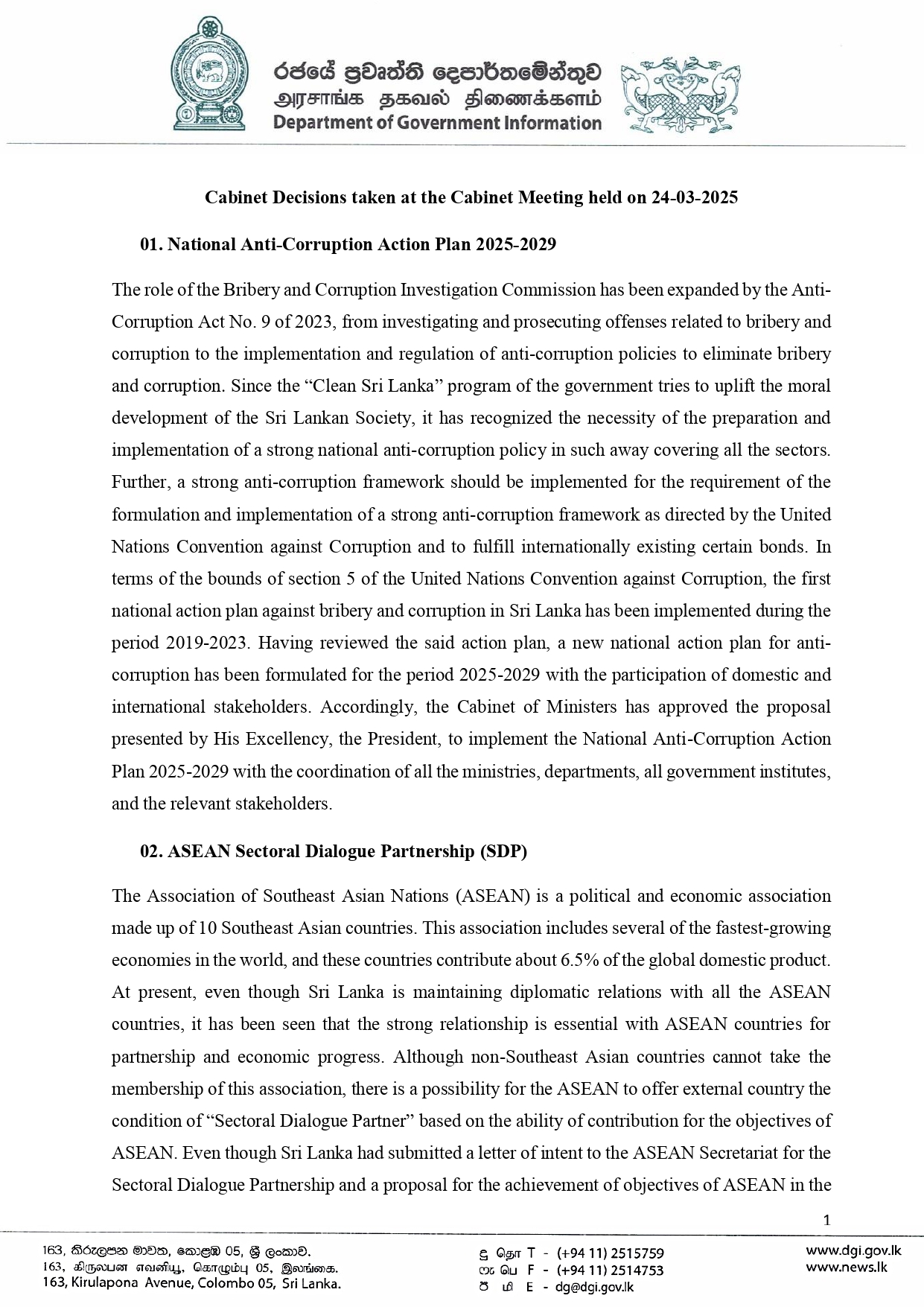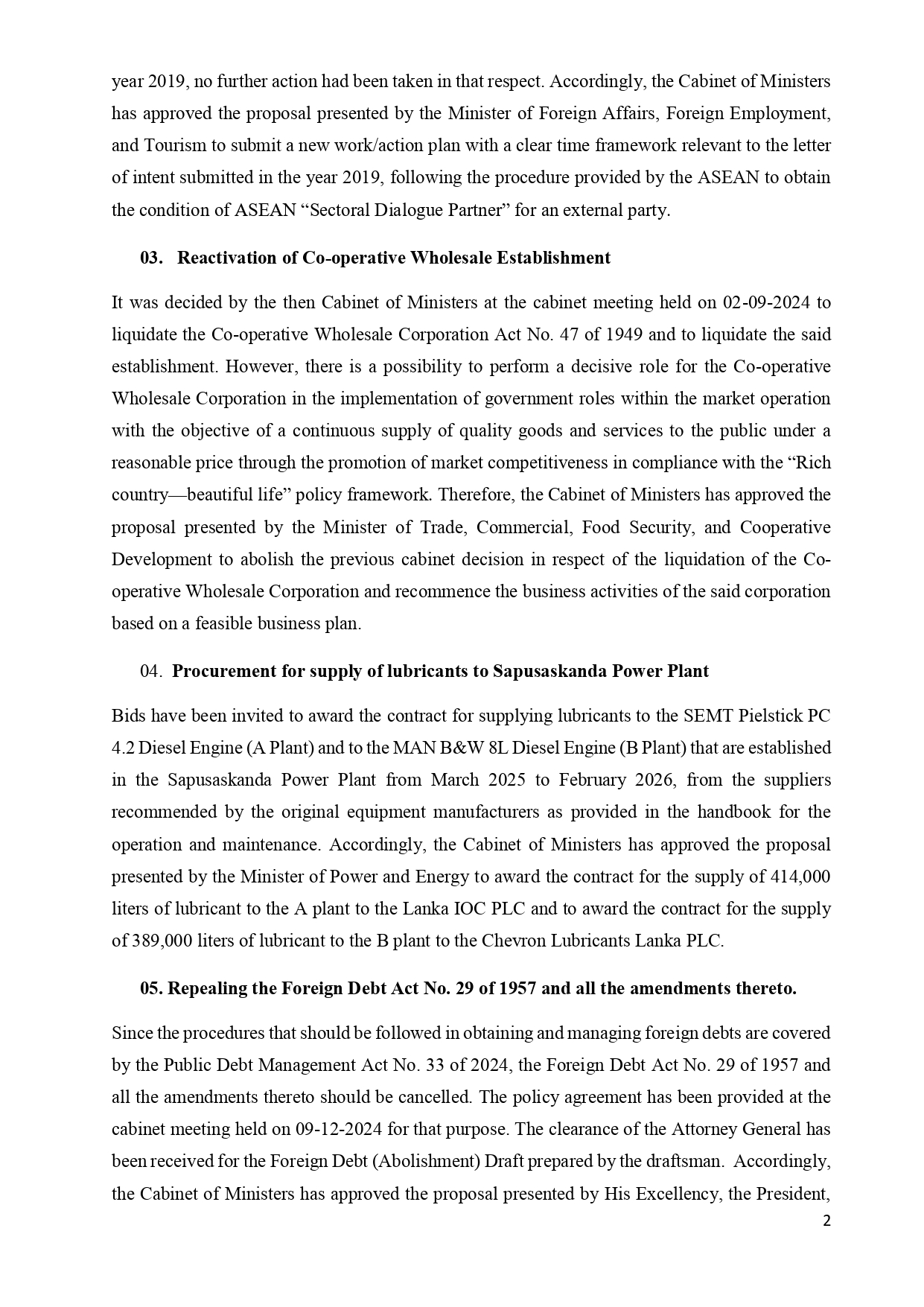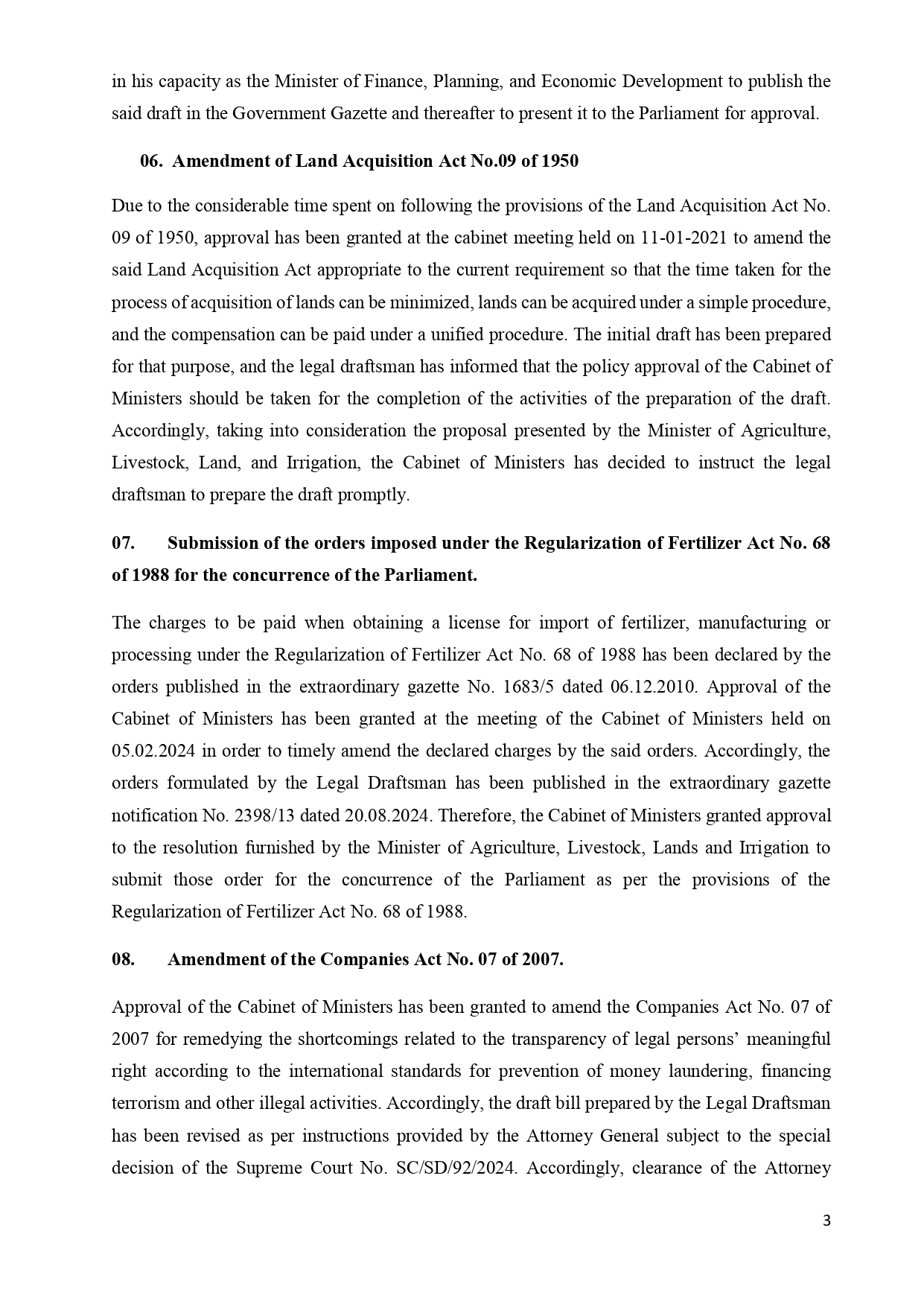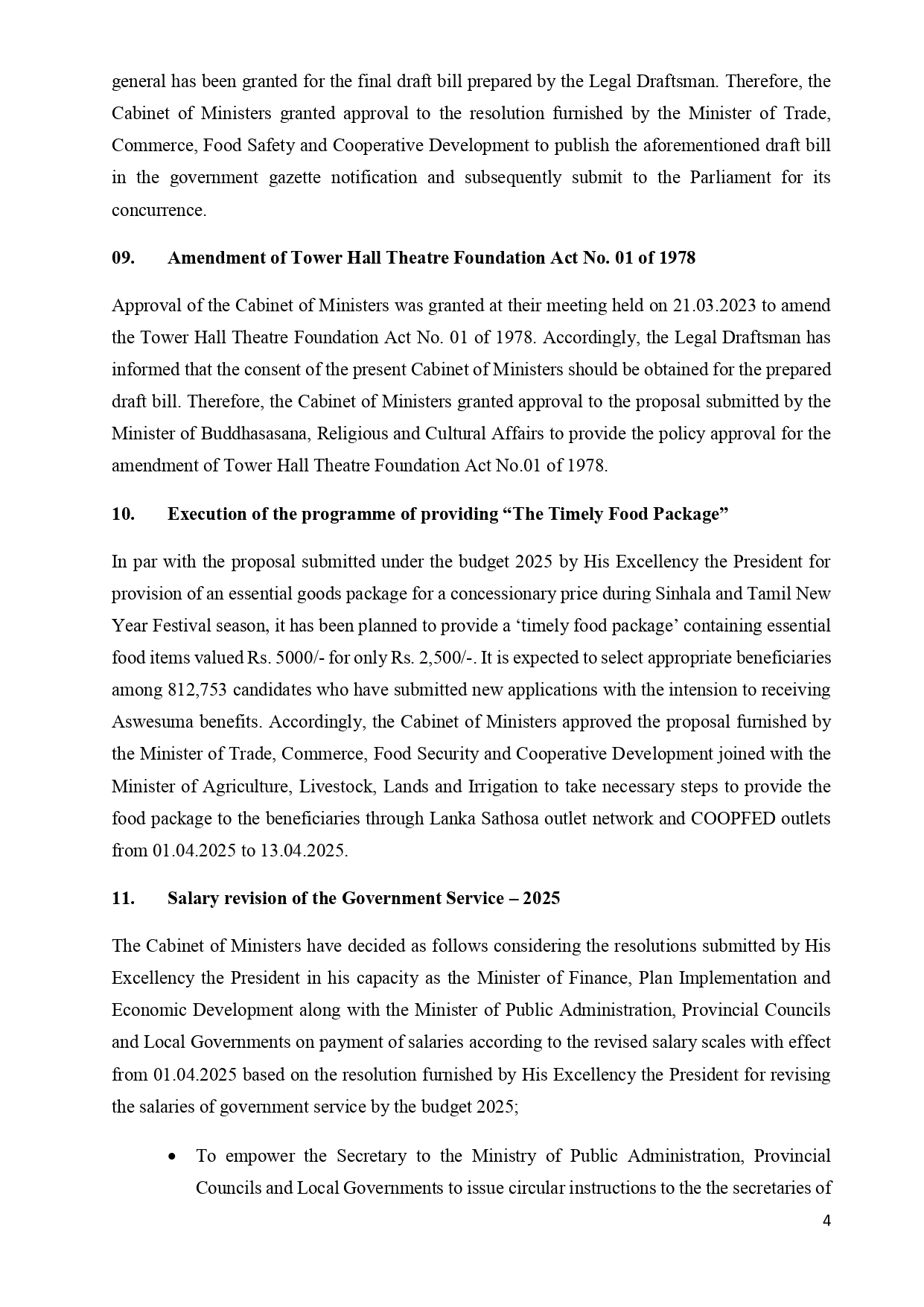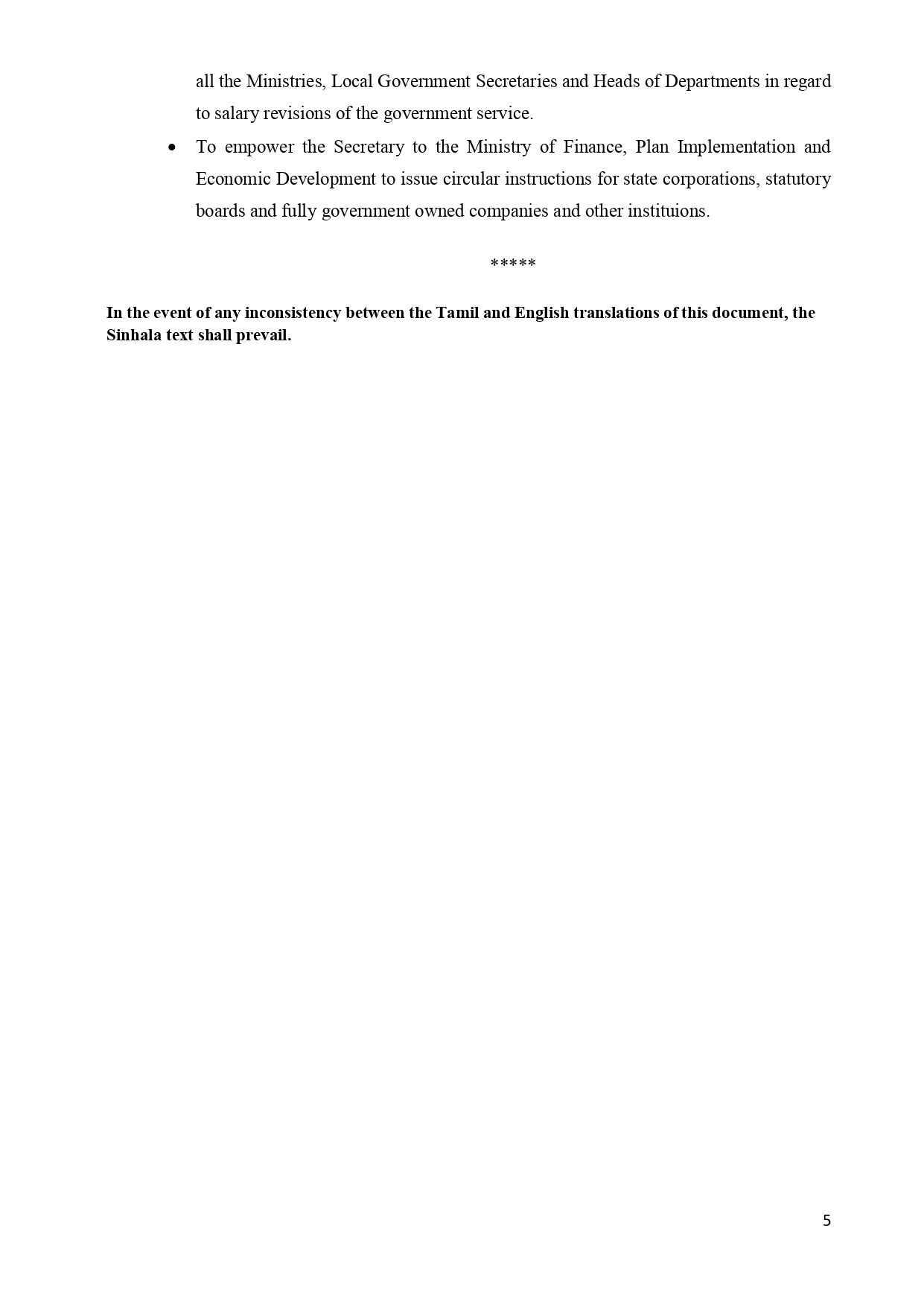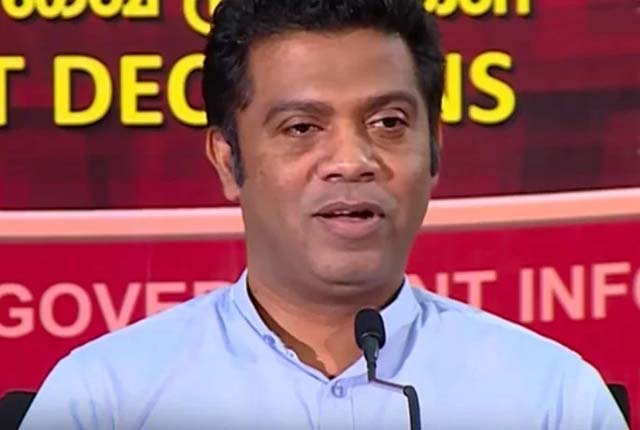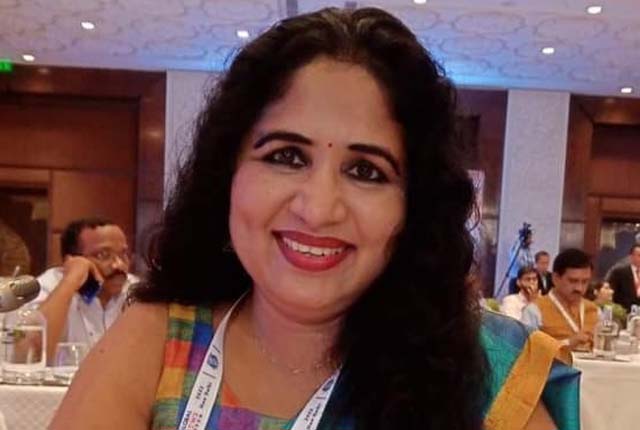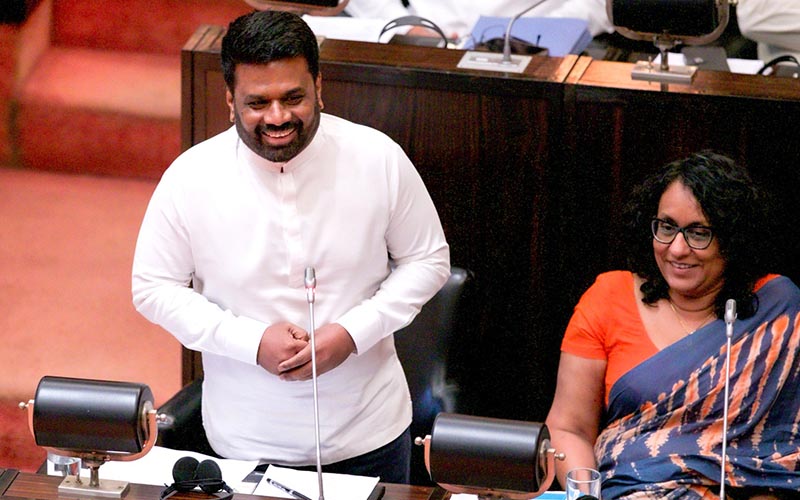- Signing of a tripartite memorandum of understanding between the South Asian Center for Teacher Development, UNESCO South Asian Regional Office, and Indira Gandhi National Open University.
The Asian Center for Teacher Development was established as an independent and self-financing institute. The UNESCO Executive Board has recommended promoting the functions of that institute and establishing partnerships with the other institutes and organizations of the region for updating the functions that should be performed by the said institute. Accordingly, it has been proposed to sign a tripartite agreement between the South Asian Center for Teacher Development, UNESCO South Asian Regional Office, and Indira Gandhi National Open University with the objective of developing regional cooperation and strengthening the national and regional action plan, including the targets stipulated in the itinerary on 2030 sustainable development through the introduction of new training programs on quality media and information literacy. The clearance of the Attorney General has been received for the proposed draft memorandum of understanding. Accordingly, the Cabinet of Ministers has approved the proposal presented by Hon. the Prime Minister in her capacity as Minister of Education, Higher Education, and Professional Education, to sign the said tripartite memorandum of understanding.
- Submission of the report to the parliament on the deviation of the headline inflation from the inflation targets stipulated in the agreement on monetary policy framework in the third and fourth quarters of the year 2024.
As per the agreement on the monetary policy framework signed on 03-10-2023 between the Hon. the Minister of Finance and the Central Bank of Sri Lanka under Section 26(1) of the Sri Lanka Central Bank Act No. 16 of 2023, the responsibility of maintaining the quarterly headline inflation at the level of 5% that is measured by the Colombo Consumer Index compiled by the Department of Census and Statistics has been laid on the Central Bank of Sri Lanka. As per Section 26(5) of the Sri Lanka Central Bank Act No. 16 of 2023, in case the Central Bank of Sri Lanka has failed to achieve the said inflation target in 02 consecutive quarters, the Board of the monetary policy framework of the Central Bank of Sri Lanka should submit a report in that respect to the Parliament through the Minister in charge of the subject of Finance. Further, it should be possible to make this report available to the public as well. The quarterly average of the headline inflation for the third and fourth quarters of the year 2024, has been 0.8% and -1.5%, respectively based on the Colombo Consumer Price Index and the said percentage has been 2% lower than the inflation target for two consecutive quarters. Accordingly, the Cabinet of Ministers has approved the proposal presented by His Excellency, the President, in his capacity as the Minister of Finance, Planning, and Economic Development, to table the report on the deviation of the headline inflation that has been submitted to the Minister in charge of the subject of finance as per Section 26(5) of the Sri Lanka Central Bank Act.
- Selection of Investors for the development of lands owned to the Urban Development Authority
It has been previously decided by the Cabinet of Ministers that the proper procurement procedure should be followed for the selection of suitable investors in the disposal of long-term leases for the implementation of land development projects belonging to the Urban Development Authority. Accordingly, the Cabinet of Ministers has approved the proposal presented by the Minister of Urban Development, Construction, and Housing for the selection of suitable investors in the disposal of long-term leases based on the assessment of the Government Appraiser, in compliance with the planning regulations of the Urban Development Authority, for the following portions of land that were assigned to the Urban Development Authority under Section 6(1) of the Government Land Ordinance.
- To dispose of 42.03 perches, 20.28 perches, and 20.72 perches, 03 portions of land under a 50-year long-term lease basis that could be disposed of after allocation of required lands for the proposed urban development out of the lands acquired for the Sellakatharagama urban development activities.
- To dispose of 03 acres—2 roods—24.59 perchas in extent from the land Dematagoda (537 watta) for 99 years.
- Awarding the contract to purchase 05 shipment of 92 Unl petrol during the period 15-04-2025 to 14-10-2025
ids have been called by the Petroleum Corporation of Sri Lanka from the registered suppliers to purchase 05 shipments of 92 Unl barrols of 300,000 + /-5% petrol for the period of 6 months from 15-04-2025 to 14-10-2025. 07 suppliers have submitted their bids for that purpose. Accordingly, the Cabinet of Ministers has approved the proposal presented by the Minister of Power and Energy to award the said procurement to the substantially the lowest responsive bidder, M/s Vitol Asia Pte. Ltd. in Singapore, based on the recommendations of the Standing Procurement Committee and the Special Standing Procurement Committee appointed by the Cabinet of Ministers.
- The procurement to purchase pre-printed polycarbonate cards for the issuance of national Identity Cards
The Department of Registration of Persons started using smart cards for the issuance of national identity cards in the year 2017. Electronic National Identity Cards should be issued to every person who has completed 15 years of age under the new procedure of the Electronic National Identity Card Project (e-NIC) that is due to be implemented in the future. It has been recognized that there is a requirement of 17 million cards for the reregistration of Sri Lankan persons and issuance of new identity cards. Accordingly, the Cabinet of Ministers has approved the proposal presented by His Excellency, the President, in his capacity as the Minister of Digital Economy, to purchase 15 million polycarbonate cards following the procurement procedure of international competitive bidding for the fulfillment of said requirement.
06. Procurement to supply 03 million doses of inactive 0.5 ml / 1 ml of Rabies injections (human use)
International competitive bids have bee invited under the procurement for supply of 03 million doses of inactive 0.5 ml / 1 ml of Rabies injections which is utilized for treating to prevent Rabies. Five (05) bids have been forwarded in this connection. Based on the recommendations of the higher level standing procurement committee, the Cabinet of Ministers approved the resolution furnished by the Minister of Health and Mass Media to award the relevant procurement to M/s Gulf Pharma (Pvt.) Ltd. (Manufacturer: M/s Chiron Behring Vaccine (Pvt.) Ltd., India), who has submitted the minimum substantial responsive bid to an amount of rupees 412.80 million.
07. Procurement to supply 70,000 vials of 5 – 6 grams of Human Imunoglobin BP for intracranial usage.
International competitive bids have bee invited under the procurement for supply of 70,000 vials of 5 – 6 grams of Human Imunoglobin BP for intracranial usage for treating patients with immunity deficiency. Six (06) bids have been forwards in this connection. Based on the recommendations of the higher level standing procurement committee, the Cabinet of Ministers approved the resolution furnished by the Minister of Health and Mass Media to award the relevant procurement to M/s Reliance Life Sciences (Pvt.) Ltd. of India who has submitted the minimum substantial responsive bid to an amount of United States Dollars 6.86 million.
08. Submission of gazette notifications for the concurrence of the Parliament.
The Cabinet of Ministers approved the resolution furnished by His Excellency the President, in his capacity as the Minister of Finance, Planning and Economic Development to submit the following notification / order / rule published in the government gazette notification to the Parliament for its concurrence:
- Notification on the revision of tax limit of luxury on moor vehicles under the Finance Act No. 35 of 2018 published in the extraordinary gazette notification No. 2421 / 41 dated 31.01.2025.
- Rule issued under the Production Levy (Special Provisions) Act No. 13 of 1989 on revision of production levy rate for vehicles operated with electricity published in the extraordinary gazette notification No. 2421 / 42 dated 31.01.2025
- Order issued under the Finance Act No. 25 of 2003 on extension of the period on which the 50% relief is active which is given to the deviation levy published in the extraordinary gazette notification No. 2421 / 30 dated 31.01.2025
09. Obtaining approval from the new Cabinet of Ministers for the legal draft to safeguard the rights of new plant species.
Although there are legal provisions for the right to publish, technical planning, right of patent, trademarks and enterprises etc, in the Intellectual Property Act No. 36 of 2003, there are no provisions for securing the rights of plant species (relevant to breeders, researchers and farmers). In addition, no patents can be issued for flora and fauna according to the provisions of the intellectual rights act. Therefore, approval of the Cabinet of Ministers was granted at their meeting held on 22.05.2024 to introduce a new act for securing the rights of plant species. Wherefore, the Legal Draftsman has pointed out that policy approval of the new Cabinet of Ministers should be taken to complete the drafting of the new flora species rights securing act. Accordingly, the Cabinet of Ministers granted approval to the proposals submitted by the Minister of Agriculture, Livestock, Lands and Irrigation to issue approval of the Cabinet of Ministers for the preparation of the said draft bill.
10. Amendment of the National Minimum Wage of Workers Act No. 3 of 2016.
Parallel to increase of salaries of the public officers by the budget proposals 2025, it has been proposed to increase salaries of private sector employees as well. Accordingly, the Cabinet of Ministers granted approval to the proposal submitted by the Minister of Labour to revise the national minimum monthly salary and national minimum daily wage and follow other legal actions as follows:
- To raise the minimum national monthly salary by rupees 9,500/- from rupees 17,500/- to rupees 27,000/- with effect from 01.04.2025
- To raise the minimum national monthly salary by rupees 380/- from rupees 700/- to rupees 1,080/- with effect from 01.04.2025
- To raise the minimum national monthly salary by rupees 3,000/- from rupees 27,000/- to rupees 30,000/- with effect from 01.01.2026
- To raise the minimum national monthly salary by rupees 120/- from rupees 1,080 /- to rupees 1,200/- with effect from 01.01.2026
11. Draft bill to establish the Chartered Institute of Media Professionals – Sri Lanka
Establishment of Chartered Institute of Media Professionals of Sri Lanka has been recognized in order to accomplish the requirement of a training institute for carrying out relevant studies with the objective of presenting media intellects fortified with skills for the uplifting quality and standards of media society of this country while creating chartered professional journalists. Accordingly, approval of the Cabinet of Ministers was granted at their meeting held on 15.08.2022 to prepare a draft bill so that the institution can be passed in the Parliament as an act passed in the Parliament. The Cabinet of Ministers approved the proposal furnished by the Minister of Health and Mass Media to grant policy approval of the current Cabinet of Ministers for completion of formulating the said draft bill.
12. Amendment of Community Based Correction Act No. 46 of 1999
Approval of the Cabinet of Ministers has been granted at their meeting held on 24.01.2024 to amend the Community Based Correction Act No. 46 of 1999. Accordingly, the Attorney General has submitted several proposals for amendments for the draft bill prepared by the Legal Draftsman. Therefore, the Cabinet of Ministers has granted their approval to the proposal furnished by the Minister of Justice and National Integrity to instruct the Legal Draftsman to prepare the final draft bill for the amendment of the Community Based Correction Act including those proposed amendments.
13. Amendment of the National Archives Law No. 48 of 1973
Approval of the Cabinet of Ministers was granted on 21.11.2022 at their meeting to appoint an intellects committee comprised of experts on the subjects of document management, document conservation and digital document management to submit appropriate recommendations for the amendment of the National Archives Law No. 48 of 1973. The intellects’ committee, after considering the views of the public as well as other instructions, has drafted a national policy on archiving and report management. In addition, examining the National Archives Law No. 48 of 1973 and the National Archives Act No. 30 of 1981, a fundamental draft as well have been prepared to take as a basis for preparation of a National Archives and Document Management draft bill. Accordingly, the Cabinet of Ministers has granted approval to the proposal submitted by the Minister of Buddha Shasana, Religious and Cultural Affairs to pass the National policy on Archives and Document Management, and instruct the Legal Draftsman to formulate a draft bill to introduce the National Archives and Document Management Act examining the National Archives Law No. 48 of 1973 and the National Archives Act No. 30 of 1981.
14. Recruitment of 30,000 gradates and youth to fill essential vacancies in the government service.
The policy of the new government is to make recruitments to the state sector without political interferences and with skills and qualifications. Considering the huge swell of the number of unemployed graduates and youth and, the state financial void existing with the government, approval of the Parliament has been granted to the budget proposal furnished by His Excellency the President in his capacity of the Minister of Finance, Planning and Economic Development to allocate provisions of rupees 10 billion from the budget 2025 for filling 30,000 essential vacancies in the state service. An officials’ committee chaired by the Secretary to the Prime Minister has been appointed to present recommendations to make essential recruitments, by reviewing staffs of various institutions in the state sector once again. Based on the recommendations furnished by the said Committee, approval of the Cabinet of Ministers have been granted for 18,853 new recruitments to the state service by now. Accordingly, considering a proposal furnished by the Minister of Public Administration, Provincial Councils and Local Governments, the Cabinet of Ministers has decided that immediate actions should be taken by the relevant Ministry to make recruitments followed by calling applications as per the recruitment schemes prescribed under “the Programme to Recruit 30,000 Unemployed Graduates and Youth to the Government Service Proposed by the Budget 2025”.
15. Submission of the Report on the Annual Economic Analysis of the Central Bank of Sri Lanka for the year 2024 to the Parliament.
As per section 80 (3) of the Central Bank of Sri Lanka Act No. 16 of 2023, the Minister in – charge of the subject of Finance shall submit a report on economic situation prevailed within the particular financial year, within four months after completion of each financial year. Accordingly, the report in relation to the financial review of the Central Bank of Sri Lanka for the year 2024 has been submitted to the President. The report has envisaged macro economic trends of Sri Lanka, situation of the financial system, as well as the major developments and a review of the policies of Central Bank of Sri Lanka. Accordingly, the Cabinet of Ministers has approved the proposal forwarded by His Excellency the President in his office as the Minister of Finance, Planning and Economic Development to submit the Report on the Annual Economic Analysis of the Central Bank of Sri Lanka for the year 2024 to the Parliament.
*****

